Table of Contents |
guest 2026-01-06 |
S2 - Introduction to Skyline for Proteomics and Small Molecules
S3 - Advanced Proteomics Topics
S4 - Advanced Small Molecule Topics
Registration
Instructor List
S1 - Introduction to Skyline for Proteomics
Description:
The course schedule will address a range of targeted techniques using selected reaction monitoring (SRM) and parallel reaction monitoring (PRM) mass spectrometry approaches for targeted quantitative proteomics. Session topics will include an introduction to mass spectrometry and proteomics, system suitability, absolute quantification, differential abundance testing, and, of course, learning to use Skyline software more effectively in your research. The instructor list includes researchers from both academia and industry with a wealth of combined experience in targeted and quantitative proteomics and using Skyline to meet the needs of diverse research questions.
Instructors: Lindsay Pino, Abby Burrows Franco, Evan Hubbard, Nick Riley, Stoyan Stoychev, Roman Sakson
Schedule:
Day 1 - Tuesday, October 8, 2024
11:00am - 7:00pm (All times EST)
- Introduction to targeted proteomics in Skyline
- The Skyline software ecosystem
- Targeted MS/MS (PRM)
- Absolute quantification and calibration curves
Day 2 - Wednesday, October 9, 2024
11:00am - 7:00pm (All times EST)
- Manual data analysis
- Using indexed retention time (iRT)
- Grouped study data processing in Skyline
- Using Panorama and AutoQC
S2 - Introduction to Skyline for Proteomics and Small Molecules
Description:
This course will address a range of targeted techniques using selected reaction monitoring (SRM) and parallel reaction monitoring (PRM) mass spectrometry approaches for targeted quantitative proteomics and other small molecule -omics. Session topics will include an introduction to setting up target lists for peptides and small molecules, basic importing and understanding targeted mass spectrometer data, absolute quantification, differential abundance testing, and a general focus on learning to use Skyline software effectively in your research. The instructor list includes researchers and the Skyline project lead, all with a wealth of combined experience in targeted and quantitative mass spectrometry, and both using and creating Skyline to meet the needs of diverse research questions.
Instructors: Mike MacCoss, Brendan MacLean, Chris Ashwood, and Deanna Plubell.
Schedule:
Day 1 - Thursday, October 10, 2024
11:00am - 7:00pm (All times EST)
- Introduction to targeted proteomics in Skyline
- The Skyline software ecosystem
- Targeted MS/MS (PRM) with peptides
- Absolute quantification and calibration curves for peptides
Day 2 - Friday, October 11, 2024
11:00am - 7:00pm (All times EST)
- Grouped study data processing
- Intro to small molecule research in Skyline
- Small molecule targets
- Small molecule quantification
S3 - Advanced Proteomics Topics
Description:
This course schedule will address mass spectrometry approaches for advanced quantitative proteomics including data independent acquisition (DIA) and post translational modifications (PTM), with topics spanning instrument method design and setup for DIA, processing DIA data within Skyline, special considerations for targeted quantification of PTMs, and, of course, learning to use Skyline software more effectively in your research. The instructor list includes researchers from both academia and industry with a wealth of combined experience in targeted and quantitative proteomics, and using Skyline to meet the needs of diverse research questions.
This course assumes students will have a basic working knowledge of the Skyline software and how to use it, either through experience or by attending the Introduction to Skyline course.
Instructors: Lindsay Pino, Abby Burrows Franco, Evan Hubbard, Juan Rojas, Weixian Deng
Schedule:
Day 1 - Tuesday, October 15, 2024
11:00 am - 7:00 pm (All times EST)
- Introduction to data independent acquisition (DIA)
- Analysis of DIA data in Skyline
- DIA instrument setup
- Generating DIA-only libraries with EncyclopeDIA
- IMS filtering for DDA and DIA quantitation
Day 2 - Wednesday, October 16, 2024
11:00 am - 7:00 pm (All times EST)
- Introduction to post transitional modifiers (PTMs)
- Carbonyl PTM walkthrough
- Skyline tips and tricks for PTM quantification
- Advanced process control for big data
- Open searching and DIA
S4 - Advanced Small Molecule Topics
Description:
While originally developed for targeted proteomics applications, Skyline is now a rapidly evolving tool for method development and data analysis of small molecule mass spectrometry data. Skyline supports workflows including MRM, PRM, and high-resolution DDA, DIA, and IMS-MS measurement of virtually any molecule. In this course, users will learn how to expand their Skyline horizons beyond those of amino-acid based peptides, to include virtually any molecule. The course will include but not necessarily be limited to the following topics: setting up new methods from transition lists and spectral libraries, building and evaluating metabolomics system suitability tests, performing collision energy and method optimization, mining high-resolution metabolomics data, ion mobility MS of lipids and building spectral libraries, retention time normalization, and multiplexed calibrated quantitative methods.
This course assumes students will have a basic working knowledge of the Skyline software and how to use it, either through experience or by attending the Intro to Skyline course.
Instructors: Chris Ashwood, Erin Baker, Amie Solosky, Michael Davern, Kat Forrest, Pawel Sadowski
Schedule:
Day 1 - Thursday, October 17, 2024
11:00am - 7:00pm (All times EST)
- Advanced methods for small molecule research in Skyline
- Small molecule method development
- System suitability for small molecules
- Advanced small molecule quantification (multiplexed panels)
- Analysis of high resolution metabolomics data
Day 2 - Friday, October 18, 2024
11:00am - 7:00pm (All times EST)
- Ion mobility in proteomics and metabolomics
- Analysis of lipidomics data in Skyline
- Retention time normalization
- Advanced data analysis and visualization in Skyline
Registration

Dear Skyline Users,
The Skyline Team and our invited instructors are pleased to announce this year's offering of the wildly popular Skyline Online course coming this October 2024. Even with 50 openings per session, last year's sessions filled up in the first week. Do not put off registering if you want to attend.
Skyline Online will offer four sessions covering these proteomics (1,3) and small molecule (2,4) topics:
- Session 1 - Introduction to Skyline for Proteomics - Oct 8-9
- Session 2 - Introduction to Skyline for Proteomics and Small Molecules - Oct 10-11
- Session 3 - Advanced Proteomics Topics - Oct 15-16 WAITLIST ONLY. SESSION IS FULL.
- Session 4 - Advanced Small Molecule Topics - Oct 17-18
[registration closed]
We will do our best to deliver again what the community has come to expect -- great instruction, engaging lectures, hands-on tutorials and plenty of student/teacher interaction and support.
The session schedules will address a range of targeted techniques using SRM, PRM, DIA and MS1 filtering, and topics like system suitability, gas chromatography analysis and a whole section dedicated to advanced small molecule analysis and data processing. All sessions aim to help you learn to use Skyline software more effectively in your research. Sessions will consist of a mix of live lectures, slides, self-paced tutorials and hands-on practicals, with instructors available for questions.
The course features two weeks of sessions; each session is two days. The Introductory sessions are similar and introduce novice participants to using Skyline in several essential mass spectrometry methods and refinement processes.
IMPORTANT: Please plan on taking only ONE introductory session (session 1 OR session 2) as we'd like to keep seats open for as many participants as possible. There are no registration restrictions on the advanced topics sessions; however, participants should have working knowledge of Skyline (OR have attended an introductory session.)
The instructor list includes researchers and software developers with a wealth of combined experience in targeted and quantitative proteomics, small molecule research and the use of Skyline.
We hope that you will clear your schedules for your sessions and join us!
Brendan MacLean,
Skyline Project Lead
[registration closed]
When: October 8th - 11th and 15th - 18th, 2024
Where: Online: Zoom link sent to registered participants
Cost: $175 per session
Apply by: First-come, first-registered, until full.
Pay by: time of registration
Participants: 50 per session
Related Links:
Course Schedule
Instructor List
Instructor List
The following instructors and speakers have agreed to contribute their expertise to the success of October 2024 Skyline Online Course:
 |
Brendan MacLean Brendan worked at Microsoft for 8 years in the 1990s where he was a lead developer and development manager for the Visual C++/Developer Studio Project. Since leaving Microsoft, Brendan has been the Vice President of Engineering for Westside Corporation, Director of Engineering for BEA Systems, Inc., Sr. Software Engineer at the Fred Hutchinson Cancer Research Center, and a founding partner of LabKey Software. In this last position he was one of the key programmers responsible for the Computational Proteomics Analysis System (CPAS), made significant contributions to the development of X!Tandem and the Trans Proteomic Pipeline, and created the LabKey Enterprise Pipeline. Since August, 2008 he has worked as a Sr. Software Engineer within the MacCoss lab and been responsible for all aspects of design, development and support in creating the Skyline Targeted Proteomics Environment and its growing worldwide user community. |
|
 |
Michael J. MacCoss, Ph.D. Mike became interested in biomedical applications of mass spectrometry while working in Dr. Patrick Griffin’s protein mass spectrometry lab at Merck Research Laboratories. He obtained a Ph.D. with Professor Dwight Matthews and pursued a postdoc with Professor John R. Yates III. In 2004 he started the MacCoss lab at the University of Washington and it became obvious that while mass spectrometry data could be collected quickly and robustly, the lack of computational tools for the visualization and analysis of these data was a stumbling block. In 2009 he recruited Brendan MacLean with the goal of developing professional quality software tools for quantitative proteomics. Mike has worked closely with the Skyline development team and our outstanding group of laboratory scientists and collaborators to ensure that our software uses analytical approaches that have been thoroughly vetted by the mass spectrometry community. |
|
 |
Chris Ashwood Ph.D. |
|
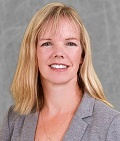 |
Erin Baker Ph.D. |
|
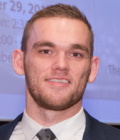 |
Natan Basisty, Ph.D. Nate is a postdoctoral fellow in Dr. Birgit Schilling’s lab in the Buck Institute for Research on Aging in California. He received his Ph.D. from the University of Washington, advised by Drs. Peter Rabinovitch and Michael MacCoss Dr. Basisty develops novel and specialized proteomic approaches to understand aging processes and age-related diseases, including the application of data-independent acquisition (DIA) or SWATH workflows to identify and quantify PTMs and secretomes, development of pipelines to comprehensively assess protein turnover rates, and cell-surface proteomics (surfaceomics). A major aim of his current work is to discover biomarkers of cellular senescence and develop translationally relevant approaches to study senescent cells in humans, enabled by the application of proteomics. Dr. Basisty has been recognized for his work investigating the role of protein turnover in mammalian aging and longevity using a combination of metabolic labeling, LC-MS/MS, and software tools. |
|
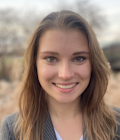 |
Katelyn Brusach Katelyn is a PhD candidate in the Searle Lab at The Ohio State University. Prior to starting her PhD, she obtained her bachelor’s degree in Biochemistry and Molecular Biology from Michigan State University. Her current research focuses on biomarkers of chronic kidney disease in cats, using both discovery and targeted approaches. She has utilized Skyline to assess and develop targeted proteomics assays in urine, plasma, and serum. |
|
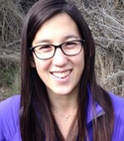 |
Ellen Casavant, Ph.D., is a Senior Scientist in the Biomarker Mass Spectrometry team within the department of Translational Medicine (TM) at Genentech. The biomarker mass spectrometry team aims to develop mass spectrometry data acquisition methods and analytical techniques to support measurement of clinically relevant candidate biomarkers from large clinical cohorts to help inform drug development decision making. As a part of this group, she leads a computational team that is developing a semi-qualified data-independent acquisition mass spectrometry pipeline that can enable efficient processing and QC of DIA-MS datasets. Dr. Casavant has developed a DIA-MS serial dilution method to help understand and establish a quantitative range within a set matrix (Casavant et al, 2023). She is particularly interested in developing a fecal proteomics technique to help to identify non-invasive biomarkers to evaluate mechanism of action for candidate IBD therapeutics and to ease endoscopy burden on patients suffering from this disease.measurements. | |
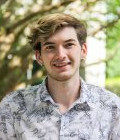 |
Michael Davern Michael is a graduate Ph.D. student in Dr. Jason Surratt’s lab at the University of North Carolina at Chapel Hill. He received his Bachelor's in Chemistry from Wake Forest University. Currently, his research focuses on developing analytical methods for quantitative outdoor atmospheric Per- and Polyfluoroaklyl substance (PFAS) analysis, employing the use of Chemical Ionization Mass Spectrometry. (CIMS) His goal is to achieve lower detection limits and establish real-time methods for atmospheric measurements. |
|
 |
Alessio Di Ianni Alessio is a PhD student in Prof. Dr. Andrea Sinz´s lab at the Center of Structural Mass Spectrometry (Martin Luther University Halle-Wittenberg , Germany). His research for the first half of his PhD focused on the characterization of the full-length wild-type human tumor suppressor p53 and the role of its disordered C-terminal domain in DNA binding by means of structural mass spectrometry (MS) techniques (covalent labeling-MS, cross-linking/MS). In the second half of his PhD, he is currently developing novel trifunctional MS-cleavable chemical cross-linkers for proteome-wide cross-linking/MS applications. |
|
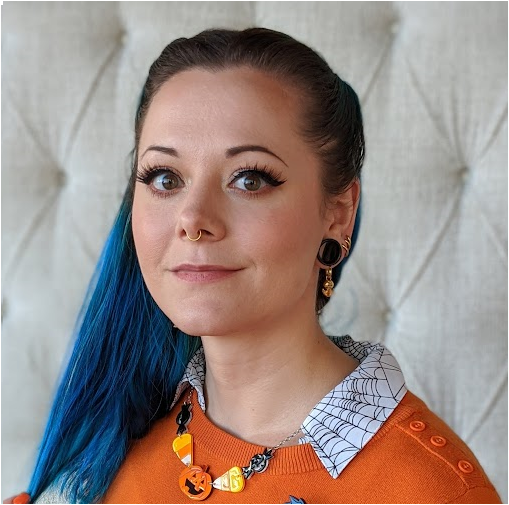 |
Kat Forrest Kat Forrest is a research scientist and graduate student in the Hoofnagle Laboratory at the University of Washington. Prior to joining UW, Kat worked as an analytical chemist at Boston-based synthetic biology company Ginkgo Bioworks, where she helped to develop quantitative methods to support bioengineering projects. In her current role in the Hoofnagle Lab, Kat regularly utilizes Skyline in her efforts to develop mass spectrometry assays for small molecules and proteins. |
|
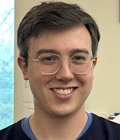 |
Evan Hubbard is a Ph.D. student in Dr. Ryan Julian’s group at the University of California, Riverside. In the Julian Lab, he uses data-independent acquisition to detect amino acid isomerization and other spontaneous chemical modifications within proteomes. He also employs novel, radical-based fragmentation techniques for top-down analysis of whole proteins. With these techniques, Evan seeks to answer questions about protein structure, human aging, and disease pathology. | |
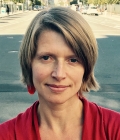 |
Ruth Huttenhain, Ph.D. Ruth Huttenhain is an incoming Assistant professor in the Molecular and Cellular Physiology Department at Stanford, which she will start her lab in Spring 2023. Currently, she holds an appointment as Assistant Adjunct Professor at the University of California San Francisco (UCSF) in the Department of Cellular and Molecular Pharmacology. She obtained a Pharmacy degree from the University of Bonn and a PhD from ETH Zurich, Switzerland, where she developed high-throughput, large scale targeted mass spectrometric approaches. During her postdoc at UCSF, Ruth extended her expertise in quantitative mass spectrometry to study dynamics of protein interaction networks. She pioneered a proximity labeling-mass spectrometry approach that simultaneously captures the precise temporal remodeling and spatial organization of proximal protein networks. The research of Ruth’s group at UCSF focuses on characterizing protein interaction and signaling networks to understand the biology underlying the development of psychiatric disorders and the sensing and transmission of pain. Ruth is the Co-Chair of the Early Career Researcher Initiative of the Human Proteome Organization (HUPO ECR). |
|
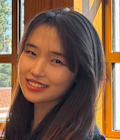 |
Jihyeon Lee , Ph.D. Dr. Jihyeon Lee is a postdoctoral scientist in Dr. Jennifer Van Eyk's lab at the Smidt Heart Institute, Cedars-Sinai Medical Center. She earned her Ph.D. from Seoul National University under the mentorship of Dr. Youngsoo Kim, where her research focused on advancing automated sample preparation for multiplexing, optimizing data acquisition, and developing targeted quantitative assays for multiple biomarker candidates. Dr. Lee has extensive hands-on experience with LC-MS/MS technologies for shotgun and quantitative proteomics. Since joining Dr. Van Eyk’s lab in 2023, her research has centered on discovering and developing targeted assays for biomarkers associated with sudden cardiac arrest. Jihyeon’s current interest lays in harnessing the latest advancements in data acquisition for quantitative MS-based proteomics to enhance the understanding of protein heterogeneity at the single-cell level. She aims to push the boundaries of proteomic analysis, enabling more precise and detailed insights into cellular protein variations. |
|
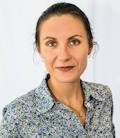 |
Camille Lombard, Ph.D. Cam obtained her PhD from the George Washington University under Prof. Nemes. There, she developed new proteomic approaches to characterize single cells in developing frog embryos. She followed Prof. Nemes to the University of Maryland as a Postdoc (1 year) and then moved on to be a NRC postdoctoral fellow at the National Institute of Standards and Technology (NIST). At NIST, Cam developed DIA approaches to characterize CAR-T cell therapies. Now, she is a Sr. Scientist at AstraZeneca in the Cancer Biomarker Development team in early oncology. Her current work focuses on developing targeted assays (PRM) to characterize the proteome of patient’s tumor tissues in clinical trial cohorts. |
|
 |
Christina Ludwig, Ph.D. Tina is heading the proteomics department at the Bavarian Center for Biomolecular Mass Spectrometry (BayBioMS) at the Technical University of Munich (TUM). Since 2015, she has been fundamental in the setup and development of the BayBioMS, which today is one of the leading science and technology platforms of TUM, equipped with the latest mass spectrometers and providing state-of-the-art proteomics and metabolomics measurements for applications in life science research. Tina studied chemistry at the Philipps University of Marburg (Germany) and received her PhD from the Technical University of Dortmund (Germany). She completed her postdoc in the group of Professor Ruedi Aebersold at ETH Zurich, where she became an expert in targeted and data-independent acquisition (DIA) proteomics. Her current research focuses on technical developments for high-throughput bacterial proteomics and peptidomics workflows. |
|
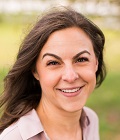 |
Lindsay K. Pino, Ph.D. Lindsay is the co-founder and chief technology officer at Talus Bio. With over a decade’s experience in analytical chemistry and computational biology, she develops technologies for quantitative proteomics. In particular, at Talus, she's working on the challenges associated with scaling-up quantitative proteomics experiments for drug discovery. She has been involved in a large variety of research projects spanning cancer drug discovery, molecular mechanisms of aging, epigenetics, and spatiotemporal proteomics. |
|
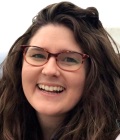 |
Deanna Plubell Deanna is a Ph.D. student in the MacCoss lab at the University of Washington. A portion of her research has been the use of data-independent acquisition to aid in peptide selection for targeted assay development. Her other research interests include the use of mass spectrometry techniques for detecting proteolytic cleavage activity and small endogenous polypeptides in neurodegenerative disease. Prior to joining the MacCoss lab, Deanna worked at Oregon Health & Science University where she used both discovery and targeted proteomics methods to investigate changes to adipose tissue and lipoprotein proteomes in cardiovascular and metabolic diseases. |
|
 |
Ana Rivas Ana Rivas obtained her Masters in Chemistry and Chemical Biology from Northeastern University and worked under Dr. Owen Skinner to investigate the intersection between top-down proteomics and metabolomics in the context of energy metabolism. Ana began using Skyline in 2021 as a research associate studying rare diseases. With a targeted (PRM) assay, she used Skyline to quantify changes in mutated protein levels and process multi-replicate study data. Ana enjoys teaching in graduate school and hopes to use her expertise to encourage more scientists to explore the applications of mass spectrometry. |
|
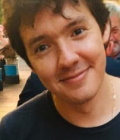 |
Juan Camilo Rojas Echeverri Juan works as a research associate in Prof. Dr. Adrea Sinz’s lab at Martin-Luther-University Halle- Wittenberg (Germany). Throughout the last year he has worked with LC-TIMS-MS/MS data for the analysis of cross-linking mass spectrometry data in Skyline. The focus of the work has been to add an additional threshold of data validation, particularly for intrinsically disordered proteins and protein regions. During his PhD under the tutelage of Prof. Dr. Ralf Hoffmann he used LC-IMS-MS to identify and quantify low abundance carbonylation PTMs in human plasma in search of potential biomarkers towards oxidative distress related diseases such as rheumatoid arthritis. Prior to his stay in Leipzig (Germany), this Panamanian-born nomad obtained a BSc in Biochemistry at Florida State University (USA), worked as a mass spectrometry technician at INDICASAT-AIP (Panama), and obtained a MSc in Molecular Analytical Science at The University of Warwick (UK). |
|
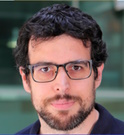 |
Eduard Sabido Ph.D. is the head of the Proteomics Unit of the Center for Genomics Regulation and the University Pompeu Fabra. His group is part of the Spanish Infrastructure for Omics Technologies (ICTS OmicsTech) and his research interests are focused on the development of innovative mass spectrometry methods for targeted protein quantification and data analysis, and recently, on the characterization of nucleoside modifications in biological samples. | |
 |
Roman Sakson works as a research associate at the Leibniz Institute for Analytical Sciences, ISAS, in Dortmund (Germany). He joined the Proteomics group headed by Prof. Albert Sickmann end of 2020. Before that, Roman worked for five years as a master as well as Ph.D. student at the Core Facility for MS and Proteomics at Heidelberg University. In 2015 Roman started working with Skyline and later Panorama for targeted assay development, data visualization and quality control. He enjoys teaching a lot and has offered Skyline courses to colleagues and fellow students on numerous occasions. Roman’s main current research interest is robust and accurate targeted proteomics for clinical applications. | |
| Pawel Sadowski Ph.D. completed his Ph.D. in the field of quantitative proteomics at the University of Cambridge. During subsequent post-doctoral appointments at the New York University and at the University of New South Wales in Sydney he applied label-free and label-based approaches to study biomarkers, protein-protein interactions and PTMs. In 2013 Pawel joined Queensland University of Technology in Brisbane to lead Proteomics and Small Molecule Mass Spectrometry Core in the QUT Central Analytical Research Facility. He supervises research that utilizes LCMS and GCMS instrumentation. Pawel’s interest lays in leveraging the power of recent advancements in data acquisition strategies for MS-based proteomics to drive clinical veterinary research into the next generation. More recently, he has started using quantitative mass spectrometry to study metabolites and other small molecules. | ||
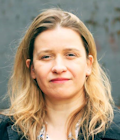
|
Virag Sagi-Kiss , PhD is an analytical chemist with over 10 years of experience in LC-MS-based small molecule quantification and identification. She holds an Analytical Chemistry Ph.D. from Corvinus University, Hungary. She focuses on clinical research for biomarker discovery that is translatable to practice and assay development. Joining Takats lab at Imperial College London in 2022 she works on combining LC-MS in different sample types, including FFPE with the novel MS imaging techniques developed in the group. Virag focuses on targeted MS imaging assay development and broadly targeted metabolomics LCMS method for small polar molecules aiming to balance coverage and sensitivity. | |
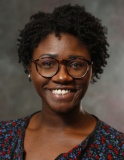 |
Ariana Shannon, Ph.D. Ariana is a recent graduate from the Hummon Research Group at the Ohio State University. Since graduating, she has started a postdoc with Brian Searle where she uses quantitative proteomics to analyze immuno-oncology based tumor models. She began using Skyline in her graduate studies as a way to vizulize chromatograms for cell culture based 3D tumor models. More recently she uses the software to assess targeted proteomics assays for various populations of immune cells. | |
 |
Amie M. Solosky Amie grew up in Ballston Spa, New York, a small town just outside of Saratoga. She completed her B.S. in Chemistry in 2019 at The College of Saint Rose in Albany, NY. Her love for analytical chemistry started at the NYS Department of Health where she started developing biomonitoring LC-MS methods and ran emergency response GC-MS methods to protect New Yorkers in the event of a chemical threat.She is currently a graduate student in the Baker Lab at the University of North Carolina at Chapel Hill. | |
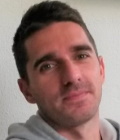 |
Stoyan Stoychev, Ph.D. Stoyan completed at PhD in Protein Biochemistry that focused on utilizing HDX-MS to elucidate the structural dynamics of the intracellular channel protein CLIC1. He further gained experience in the field of biological mass spectrometry working at the CSIR Proteomics core facility (Pretoria, South Africa) for over 15 years. He is currently a joint position in the applications development teams of Evosep Biosystems and ReSyn Biosciences with main focus on developing end-to-end (sample to mass spectrometer) solutions for standardized proteome profiling. |
|
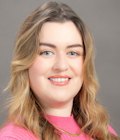 |
Emmajay Sutherland Emmajay is a postdoctoral fellow in the Riley lab at the University of Washington. She completed her PhD in the Czekster lab at the University of St Andrews, Scotland where she used Skyline for metabolomics-based projects. Her current research with Professor Nick Riley is now focused on creating methods to target the glycoproteome for clinical applications. |
|
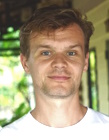 |
Tim Veth is a postdoctoral researcher in the Riley Research Group at the University of Washington, Seattle. He earned his Ph.D. under the mentorship of Maarten Altelaar and Albert Heck at Utrecht University, where he specialized in mass spectrometry techniques to explore kinases and phosphorylation-driven signaling pathways in health and disease. Currently, his research centers on unraveling glycoimmune checkpoints for cancer therapy and advancing mass spectrometry-based glycoproteomics methodologies. |